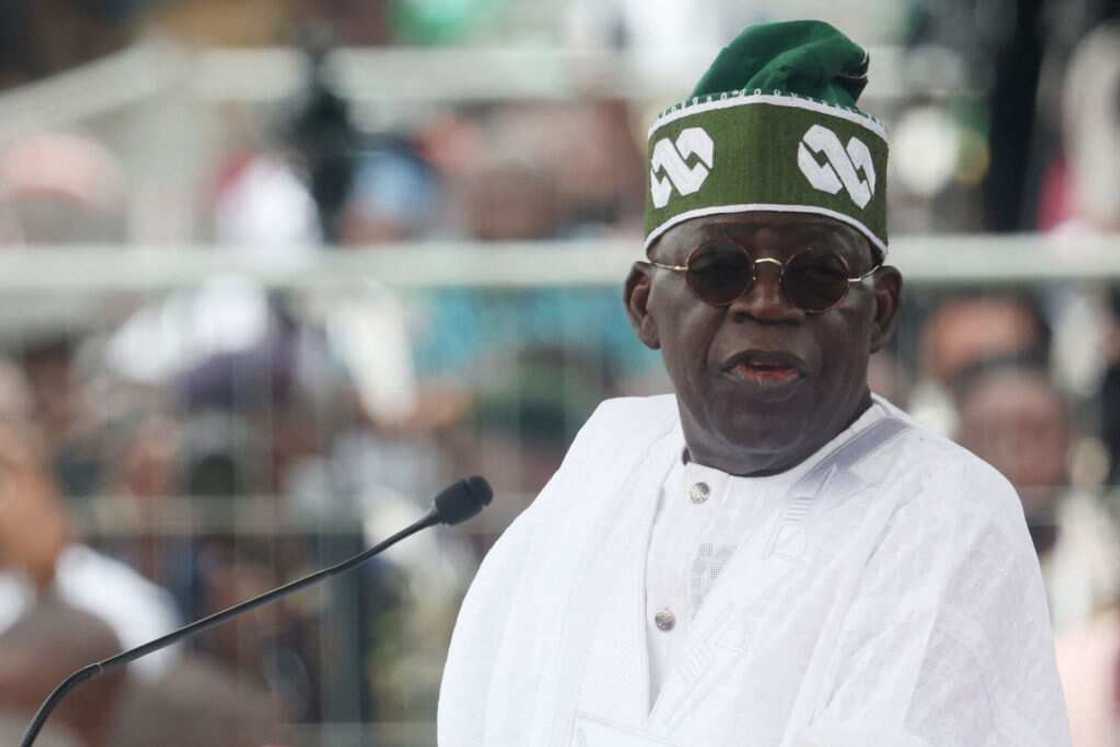United Nations Reveals The Damage Fuel Subsidy Removal in Nigeria is Causing
- The United Nations has said that the removal of petrol subsidies in Nigeria is causing harm to its people
- The UN said about 700,000 children in the north are in extreme danger of hunger and malnutrition
- It stated that the condition had been made worse by the rise in petrol prices across the country
PAY ATTENTION: Click “See First” under the “Following” tab to see Legit.ng News on your Facebook News Feed!
According to the United Nations, the fight against extreme hunger in Nigeria, especially in Northern Nigeria, has increased because of high energy prices caused by the removal of fuel subsidies.
UN’s Senior humanitarian representative in Nigeria, Matthias Schmale, said on Wednesday, June 28, 2023, that about 700,000 children under five are in danger of life-threatening malnutrition, which has grown in size in the past year.

Source: Getty Images
About 4.3 million people in North East are in danger of hunger
He said these children are among the 4.3 million people in the North Eastern states of Borno, Adamawa, and Yobe at risk of acute hunger.
PAY ATTENTION: Join Legit.ng Telegram channel! Never miss important updates!
He said:
“I have been to Borno and the other two states several times. I’ve seen mothers fighting for the lives of their malnourished children in nutrition stabilization centers.”
Schmale warned that the disastrous scenario is primarily a consequence of over a decade of insecurity and insurgency in the region, with non-state actors hindering people from farming and making a living out of the land.
He also stressed that other effects of the insecurity include extreme weather impacts, such as flooding in Nigeria, affecting over four million people.
World Food Pgramme unveil humanitarian aid for north east
BusinessInsider said that the research by the UN said that just 25% of the $1.3 billion in humanitarian aid required for the North East had been received so far and noted that the worsening crisis of food, fuel, and fertilizers had exacerbated the issue.
To tackle the country’s growing hunger, the World Food Programme unveiled a $2.5 billion Country Strategic Plan (CSP) for Nigeria and malnutrition in a few areas in the north east.
The framework aims to improve nutrition and attain food security in Nigeria by 2030, which aligns with Sustainable Development Goal 2.
Tinubu's subsidy removal triggers inflation
During his inaugural speech, Nigeria’s new President, Bola Tinubu, said that the country is ending its chaotic subsidy program, which has gulped trillions of dollars over the years.
The announcement immediately triggered a petrol price increase across the country, with the nation’s Nigeria National Petroleum Company Limited (NNPC) adjusting its prices.
The price adjustment, adopted by other prominent petroleum marketers in the oil-rich nation, triggered inflation, currently standing at 22.04 percent, according to the National Bureau of Statistics (NBS).
“Fuel Subsidy is gone,” President Tinubu reveals in inaugural Address
Legit.ng reported that the newly inaugurated Nigerian President, Bola Ahmed Tinubu, has stated that his administration will not continue paying fuel subsidies.
Tinubu made this known during his inaugural speech at the Presidential inauguration at Eagles Square, Abuja, on Monday, May 29.
The Nigerian Tribune reported that Tinubu is fully aware of the subsidy removal in the 2023 budget, already running before his administration took over, noting that the country cannot continue to pay fuel subsidies.
Source: Legit.ng


